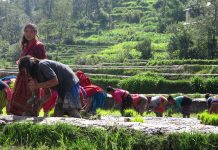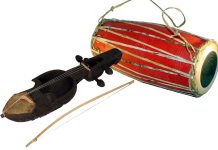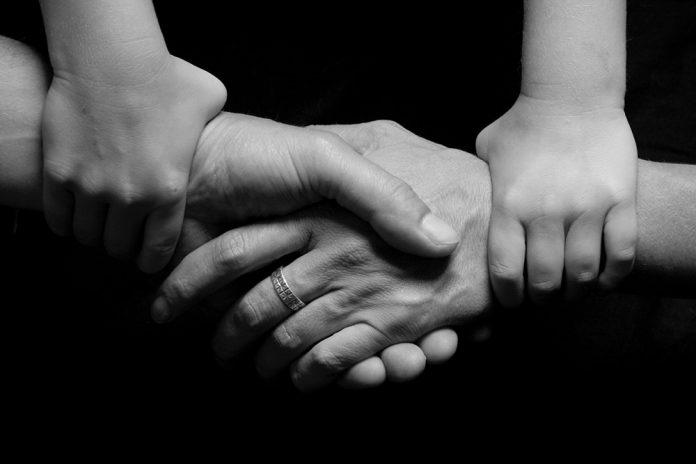There is a popular expression in the two most important cultures that has shaped me, Nepal & India. Directly converted into English it translates to “Will your father do it?”. The linguistic sentence ends there. But the sentence continues through the aid of body language and cultural implications, “…..if not you!”
I have used this expression myself without truly understanding its emotional and relational roots. But being a father has helped see right through it. Now I can say with certainty that it is a relational fact that holds true across all the cultures just like Einstein’s e=mc square in Physics. This hold true without exception amongst people of diverse background in my new home Australia too.
Dear readers, if you are curious to know how the expression is said in its own language, here it is,”Tero Bou le garcha?” and “Kya, Tera Baap Karega?” in Nepali and Hindi respectively.
A month ago, I and my wife were diverting huge amount of energy to solve a problem at home. This was caused by equipment which is found in every Australian house-“a vacuum cleaner”. My two year old daughter creates so much mess that half our time is spent cleaning but she does not care as her dad would clean it. In addition due to excessive use of vacuum cleaner we were facing high levels of noise and dust pollution. Moreover, as we exploited the machine above its recommended usage; it broke down frequently demanding a replacement or expensive fixing. After using a problem solving strategy from a book that I recently read “Mckinsey Mind”, answer was revealed-buy a broom stick, tall enough which can be applied in standing posture -saving any pain to your back. So we went to a $ shop and bought a Chinese Innovation.
Once I begun using the newly discovered old technology -the problem was solved. It was one of the wisest purchases I have made in many years .Firstly; I no longer dread the mess that my two year old makes and do not mind using it couple of times a day unlike vaccum cleaners. Secondly, no more noise and immensely reduced dust pollution. Lastly, I never understood my friends who loved gardening, when they described it to be meditative. Broom did the same to me!
On one such session with the broom, I was thinking hard to recollect stories that I heard as a kid. I had to prepare a story to tell my daughter before bed. My thoughts drifted from one scene to other from a story that my mother told us more than once. But what was unusual was that the story rolled in my mind as visual scenes from my own life.
First scene was where; I and my wife were stressed at breaking the news to our parents of our intention to marry inter caste. We understood their social engineering and were disheartened to hurt them. However, after showing some kind of initial irritation they consented and said, “All they wished was for us to be happy.” Caste system in Nepal is highly complex and continues the traditional system of social stratification of Nepal.
However, in Nepal people sometimes erroneously use word caste to mean their race or ethnicity making it a racist system .In recent days this system has been heavily manipulated and misused by politicians to their advantage. This has divided the people and the nation of Nepal. The most worrying aspect is that they have managed to attract adherent followers outside Nepal too. Just for example, there are more than 50,000 Nepalese living in Australia, who have formed numerous associations. However, if you visit them you are most likely to meet Gurungs, Magars, Newars, Kirats, Tamangs, Sherpas, Bhaun & Chhetris or Madhesi rather to Nepalese.
Smoothly scene in my mind rolled. I saw myself calling my parents from Delhi, Cochin, Melbourne where I spent my time as student .What took me by surprise was all the conversation was short and same. I would not even bother to ask them about their health or life in general but ask them for money for my expenses. Naturally, they would ask for the reasons and the spending details of what was sent earlier. Then, I would get agitated and hang the phone. After sometime or days I could receive a call saying they have wired it. It took me 7 to 13 years after those incidents to understand the personal sacrifices that I enforced on my parents.
In an abrupt the scene changed, here my father was in a serious conversation to my mate’s father. They were talking about us hesitating to be dropped back to boarding school on public transport (as we did not own a vehicle then) after our leave weekend .We demanded to be dropped off in private taxi as other kids were dropped off in fancy cars.
Budhanilkantha School was considered to be one of the best schools in Nepal not just for education, extra curriculum but the mix of people who attended it. The school was attended by prince of Nepal, sons of ministers & businessmen to kids from the most remote parts of Nepal belonging to poor of the poorest families. Quota was assigned to each of 75 districts of Nepal and students had to compete on credentials. Scholarships was provided by Nepalese and British government according to the financial background of the family.
Being a father I understand how frustrating & insulting such act can be. But they adhered just to make sure we fitted in and were happy regardless of their circumstances.
I was done with the cleaning this Saturday evening and was in flow of the story which I was to tell my daughter that night. Suddenly the phone rang to distract me. After a while my wife popped out and said that my parents were on the line. I asked them about life in general and their health. Then, I proceeded to answer their questions about health, food, business, writings, speeches, yoga…..Once there was no further conversation my parents hung up with these words that left me thinking-“please let us know if you need anything, we have retired but if you need any support apart from our love we have our retirement saving and property that we can sell to assist you.”
My wife noticed that I was lost in my own thoughts and she enquired, “What have you been thinking of?” I explained everything to her from the story that my mother told us as we were kids and how I saw various scenes from my life in relation to it. She listened carefully and after I was done she said, “Interesting, maybe you should share this story with everyone by writing it.”
It was bed time and my daughter insisted I tell her a story. I decided to pass on the story my mother had told us years before.
A long time ago, there was a huge apple tree. A little boy loved to come and play around it every day. He loved the tree top, ate the apples, and took a nap under the shadow. He loved the tree and the tree loved to play with him.
The little boy had grown up and he no longer played around the tree every day. One day the boy came back to the tree and he looked sad. “Come play with me,” the tree asked the boy. I am no longer a kid; I don’t play around trees anymore the boy replied. I need money to buy toys he added. The tree said, “Sorry, I don’t have money but you can pick my apples and sell them.” The boy was so excited. He grabbed all the apples on the tree and left happily. The boy never came back after he picked the apples. The tree was sad.
One day the boy returned and the tree was so excited. “Come and play with me,” the tree said. I don’t have time to play. I have to work for my family. We need a house for shelter. Can you help me? “Sorry but I don’t have a house. But you can chop off my branches to build your house.” So the boy cut all the branches off the tree and left happily. The tree was glad to see him happy but the boy never came back since then.
Finally, the boy returned after he left for so many years. “Sorry, my boy, but I don’t have anything for you anymore. No more apples, no more trunk for you to climb, the only thing left is my dying roots” the tree said. The boy replied, “I don’t have teeth to bite apples or strength to climb a tree, I don’t need much now, just a place to rest. I am tired after all these years.”
The tree said, “Good! Come sit down with me, old tree roots are the best place to lean and rest on.” The boy sat down and the tree was glad and smiled with tears.
My daughter was fast asleep by now! I switched off the lights thinking how those little brains might have processed the story. Then I thought maybe I should share it as there is a message for most of us in it. The tree is our parents. When we were young, we loved to play with Mom and Dad. When we grew up, we left them only come to them when we need something or when we are in trouble. No matter what, parents will always be there and give everything they can to make you happy. You may think the boy is cruel to the tree but that is how all of us are treating our parents. Love your parents, no matter where they are!
– Anup Bhandari
Anup Bhandari, is the CEO of Nirvana Groups specializing in events, travel and imports. He is based in Sydney, Australia. He is also a motivational speaker and a published writer. He can be reached via email at anup.anupbh@gmail.com













































